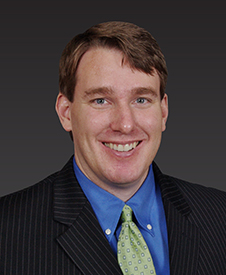After nearly 88 years, the Ashburn-based Washington Redskins announced Monday morning that it will retire the Redskins name and logo after weeks of discussion over what many see as a discriminatory and derogatory name against Native Americans.
A new team name has not been announced.
Monday’s announcement comes after a July 3 statement saying it would undergo a “thorough review” of the team name, “in light of recent events around [the] country.”
“Dan Snyder and Coach Rivera are working closely to develop a new name and design approach that will enhance the standing of our proud, tradition rich franchise and inspire our sponsors, fans and community for the next 100 years,” according to the statement released Monday morning.
Snyder purchased the National Football League franchise team in 1999, and told USA Today in 2013 that the team name would never change.
“We will never change the name of the team,” Snyder told USA Today in 2013. “As a lifelong Redskins fan, and I think that the Redskins fans understand the great tradition and what it’s all about and what it means. … We’ll never change the name. It’s that simple. NEVER — you can use caps.”
The name change comes amid pressure on sports teams, franchises and brands to reevaluate names that could be seen as derogatory or discriminatory based on race. The Washington Redskins have held the name since 1933, and for approximately 30 years its fight song, “Hail to the Redskins,” included derogatory language against Native Americans, such as “scalping.”
On July 2, the team’s stadium sponsor, FedEx, sent a private letter to the football franchise stating that FedEx would remove its signage from the stadium after its 2020 season unless the team changed its name, The Washington Post first reported. The shipping giant signed a $205 million deal for stadium naming rights in 1999 and it isn’t set to expire until 2025.
“We have communicated to the team in Washington our request that they change the team name,” Memphis-based Fedex later said in a released statement.
The National Football League franchise was first named the Boston Braves, but the team name was changed when the team moved. A baseball team in the area already played under the name the Braves. The team has been located in the Washington, D.C. area since 1937, and were Super Bowl champions in 1983, 1988 and 1992.
Since the inception of the Redskins name, Native Americans and other advocacy groups have advocated for a name change, citing that “redskin” is a derogatory term to refer to native groups. George Preston Marshall, the founder and original owner of the Redskins, was in the early 1960s, forced to racially integrate his franchise — making him one of the last NFL franchise owners to do so.
A statue of Marshall stood at the Robert F. Kennedy Memorial Stadium (RFK Stadium) until June 19, when it was taken down amid the removal of statues of Confederate and segregationist figures across the United States.
“This symbol of a person who didn’t believe all men and women were created equal and who actually worked against integration is counter to all that we as people, a city and nation represent,” Max Brown, the chairman of the Events DC board of directors, said in a statement. “We believe that injustice and inequality of all forms is reprehensible and we are firmly committed to confronting unequal treatment and working together toward healing our city and country.”
The Washington Redskins in 2019 had the seventh-highest NFL team valuation at $3.4 billion, according to Forbes.

Subscribe to Virginia Business.
Get our daily e-newsletter.



